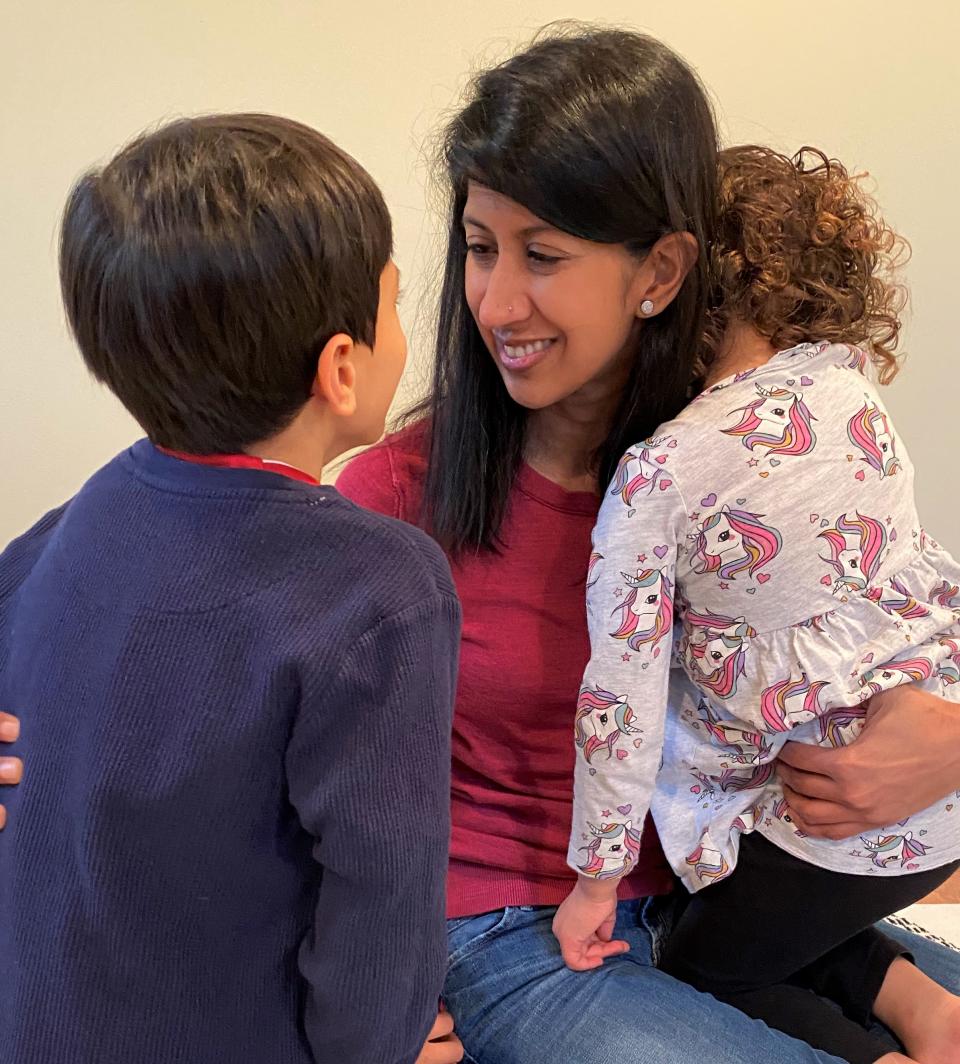'Who gets the kids?' I took an oath to serve my patients. My family didn't, but we're all in this together.
“We need a will.”
Like most Americans, we know we need one. We just haven’t gotten around to it. There are soccer practices, work deadlines, bills and a thousand other reasons why we don’t have one yet. But now this routine obligation has taken on a new urgency. I am an infectious diseases doctor on the frontlines. In Italy, new data show that 20 percent of health care workers tested positive for COVID-19. In the U.S., people in my age group, 20 to 44, who test positive for coronavirus have a one in five chance of requiring hospitalization, and about a fifth of those end up in an intensive care unit.
If I get infected, my chance of dying is one in 500. Not a large risk, but not small enough to ignore.
After we put the kids to bed tonight, we’ll fill out the paperwork. Thinking about your mortality a few weeks before turning 40 is usually standard practice. And yet, there’s nothing ordinary about this. This is practical. I’ll pour a glass of wine and my husband will pour himself a bourbon. We’ll sign and date. Cheers.
“Who gets the kids if we both get sick and die?”
“That won’t happen. I’ll be careful. I’ll do everything right.” I’m spinning a fantasy. I can’t control this situation — my voice trails off. My husband holds my hand in his and sips his drink. The silence is deafening.
“Who gets the kids?”

My eyes well up and my husband gently wipes my tears with his hands. I think of starfish hugs from my daughter. Those are what we call the hugs where she wraps her arms and legs around me and nestles her head under my chin. She’s 4 and loves us so much. My son is older and more mature, 7 going on 17, but when no one’s there he still climbs into my lap to cuddle. It’s too much. My husband is holding me and we’re both trying not to cry. Trying and failing.
My husband is a scientist, the most caring and rational man I’ve ever met. We’ve talked about keeping me separated from our family, but the logistics are unworkable. Instead, we have a routine for when I come home: I undress immediately, my scrubs and white coat go directly into the washing machine and I go straight into the shower. Scrubbing and scrubbing to keep my family safe, but how much difference does this really make? If I have COVID-19, I can infect them before I start showing symptoms. Our routine reduces the risks but I’m still here, still posing some kind of risk to my family. Still hugging and comforting my children who sense that I’m holding back some unbearable truth. This is so much harder than the decade of hospital shifts that have come and gone.
In the hospital, I dutifully ask questions and write down the relevant details. I listen to wheezing and coughing with my stethoscope in closed exam rooms and, when those aren’t available, in hallways, assessing conditions and explaining the possible outcomes to my patients. I wear the same N95 respirator mask from room to room knowing that any manipulation of the mask, including to eat or drink water over 12 hours, increases my risk of infection. On my most recent shift, every patient I cared for tested positive for COVID-19. I wash my hands, I am abundantly cautious, but nothing is guaranteed.
It’s 3 a.m. and I’m wide awake, looking over at my husband sleeping restlessly. My oath to serve my patients risks more than my own health. I’m a foot soldier in a white coat, endangering the ones I love the most. What we are asking of our health care workers is horrible. And yes, we choose to work, but the ones who love us cannot unlove us. Underneath our courage is a deep well of fear, anxiety, sadness, and, worst of all, guilt.
Ashita Batavia, MD, MSc, (Instagram: @ashita_batavia) is a board-certified infectious diseases specialist and public health expert at Lawrence Hospital NYPH-Columbia, where the second COVID-19 case in New York was diagnosed. She lives with her family in Westchester County, N.Y., near the coronavirus containment zone in New Rochelle.
_____
Click here for the latest coronavirus news and updates. According to experts, people over 60 and those who are immunocompromised continue to be the most at risk. If you have questions, please reference the CDC and WHO’s resource guides.
Read more:


